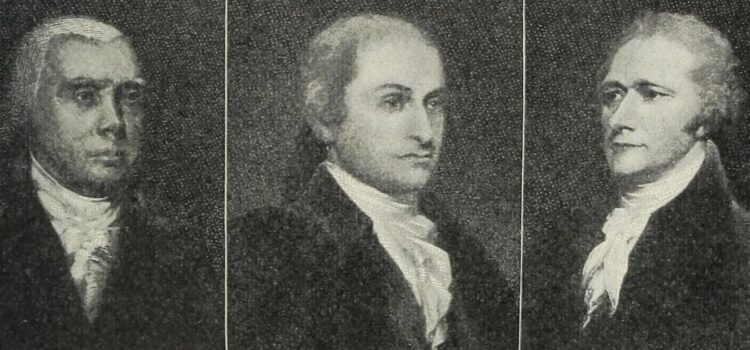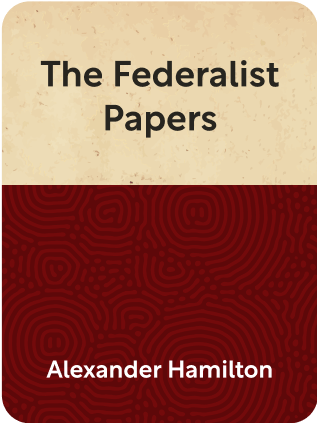

This article is an excerpt from the Shortform summary of "The Federalist Papers" by Alexander Hamilton. Shortform has the world's best summaries of books you should be reading.
Like this article? Sign up for a free trial here .
Who was Publius? Who were the three authors of The Federalist Papers, and why did they use a collective pseudonym?
Publius was the collective pseudonym used by the three authors of The Federalist Papers. They were Alexander Hamilton, James Madison, and John Jay.
Read more about Publius and the three authors of The Federalist Papers.
Who Was Publius?
The essays that comprise The Federalist Papers were published under the collective pseudonym of “Publius.” Most readers at the time of publication did not know the answer to “who was Publius?” They also didn’t know who wrote which of the essays.
While historians are still not completely certain about the authorship of each essay (and it has long been a subject of dispute in the academic community), there is a general scholarly consensus for the following attribution:
- Alexander Hamilton (51 essays: 1, 6–9, 11–13, 15–17, 21–36, 59–61, and 65–85)
- James Madison (29 essays: 10, 14, 18–20, 37–58 and 62–63)
- John Jay (5 essays: 2–5 and 64)
In this summary, we have referred to the authors under the original, collective pseudonym. Furthermore, we have grouped the essays thematically, sometimes merging two or several essays under one section. Again, to enhance readability, we did not create individual sections for each of the 85 essays. We have, however, indicated which essays are summarized in the title of each chapter.
Experience for the Authors of The Federalist Papers
The authors of The Federalist Papers needed to overcome this ingrained political opposition to a strong Union between the states. Alexander Hamilton, James Madison, and John Jay (writing under the collective pseudonym “Publius”) used The Federalist Papers to make the opposite case: that a strong national government was not a threat to liberty; in fact, it was its greatest guarantor.
(Shortform note: The authors of the Constitution and The Federalist Papers seem not to have anticipated the rise of organized political parties. Indeed, the first two parties—the Federalists and the Democratic-Republicans—came into existence almost immediately after ratification. With the arrival of political parties, the main theatre of political competition was not between branches of government. Instead, co-partisans began to cooperate across branches of government to achieve shared party goals, precisely the opposite of what the Framers had intended. Ironically, these original parties were led in large part by the primary authors of The Federalist Papers—Hamilton for the Federalists and Madison for the Democratic-Republicans.)
The plan that came out of the Philadelphia Convention was not perfect. It was, however, the best that could have been hoped for under the political circumstances of the time. The authors of The Federalist Papers urged the swift ratification of the Constitution, which they argued was the only path forward for national renewal and a fulfillment of America’s great potential.
Inevitably, future generations of Americans would see the need to update the Constitution to meet new challenges. The Framers could not anticipate what these needs and challenges would be, but they created a process by which the Constitution could be amended.
But Publius cautioned against hasty changes. It was prudent, instead, to let the merits of the new plan of government reveal themselves over time. Time and experience would prove the wisdom and effectiveness of the new, supreme law of the land.

———End of Preview———
Like what you just read? Read the rest of the world's best summary of Alexander Hamilton's "The Federalist Papers" at Shortform .
Here's what you'll find in our full The Federalist Papers summary :
- The genius of the founding fathers in how they designed the United States Constitution
- Why it was critical for the United States to form a union rather than stay separated as colonies
- How Alexander Hamilton anticipated social issues that are still relevant today






